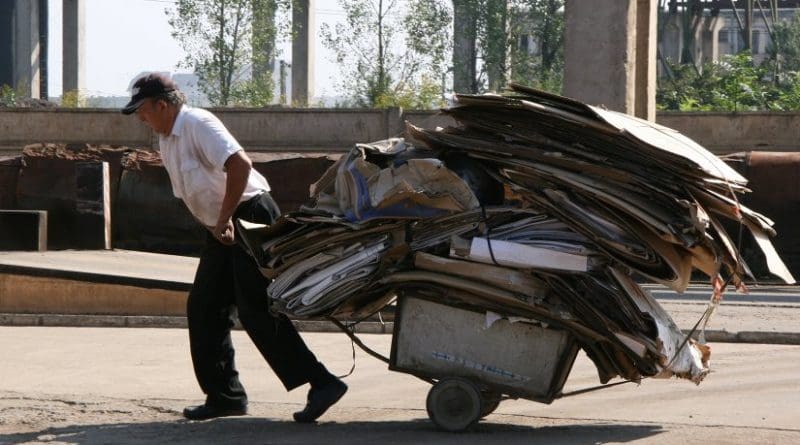The Risks Of Growing Urbanization – OpEd
The sheer magnitude of the urban population, haphazard and unplanned growth of urban areas, and a desperate lack of infrastructure are the main causes of the current chaotic situation.
The rapid growth of urban populations, both natural and through migration, has put heavy pressure on public utilities such as housing, sanitation, transport, water, electricity, health, education and so on. Poverty, unemployment and under-employment among rural immigrants, beggary, thefts, burglaries and other social evils are on rampage. Additionally, urban sprawl is rapidly encroaching precious agricultural land. By 2030, more than 50 percent of population is expected to live in urban areas.
The following problems need to be highlighted.
Intensive urban growth can lead to greater poverty, with local governments unable to provide services for all people. Concentrated energy use leads to greater air pollution with significant impact on human health. Automobile exhaust produces elevated lead levels in urban air. Large volumes of uncollected waste create multiple health hazards. Urban development can magnify the risk of environmental hazards such as flash flooding. Pollution and physical barriers to root growth promote loss of urban tree cover. Animal populations are inhibited by toxic substances, vehicles, and the loss of habitat and food sources. Unemployment is now considerable in many towns and informal sector opportunities (including market trade, food and betel nut selling and cleaning) cannot absorb growing population numbers. Low incomes and large household sizes have posed problems.
Though many migrants have achieved success, social problems, with domestic violence and family breakdown have sometimes occurred away from kin support and the subsistence safety net of rural areas. Crime has worsened, creating a new security industry, raising the costs of business development and straining the judicial system. Socio-economic inequalities have grown. Health and nutrition are sometimes poor in town where low incomes, poor access to gardens and the rise of a junk food industry exist. Service provision (water, sewerage, electricity, waste removal etc.) is sometimes inadequate, especially in the squatter settlements that exist in marginal areas (such as remote, swampy or steeply sloping land). Housing is costly, low-cost housing scarce and rents are high.
Urban land is increasingly scarce, whether for housing, industrial development, recreation or open space. Land tenure issues complicate urban management and planning as customary land remains in or close to most towns. Land use plans are therefore difficult to construct whilst town planning remains in its infancy.
Population densities are very high in some towns, especially in Micronesia, whilst lack of land has made waste disposal a problem. There is little recycling and a scarcity of landfill sites, especially in atoll environments. Many urban rivers and coastal lagoons are polluted and water supplies contaminated, posing threats to health. Land settlement schemes have absorbed few people and rural development has not discouraged rural urban migration, especially where rural service provision is inadequate.
Achieving sustainable urban development requires slowing urban growth rates (by reducing overall population growth rates, and slowing migration by stimulating rural development), integrated urban development and planning, new employment creation ( at a time when comprehensive reform programs are reducing the public service) and more rates and revenue collection. None of this is easy hence urban problems will remain into the new millennium.
The following recommendations can curb urbanization:
- Combat poverty by promoting economic development and job creation,involve local community in local government.
- Reduce air pollution by upgrading energy use and alternative transport systems.
- Create private-public partnerships to provide services such as waste disposal and housing.
Plant trees and incorporate the care of city green spaces as a key element in urban planning
*Myrah Qadeer Khan, MPhil in Media studies/ Lecturer- UG studies in International Development studies from University of London [email protected]

